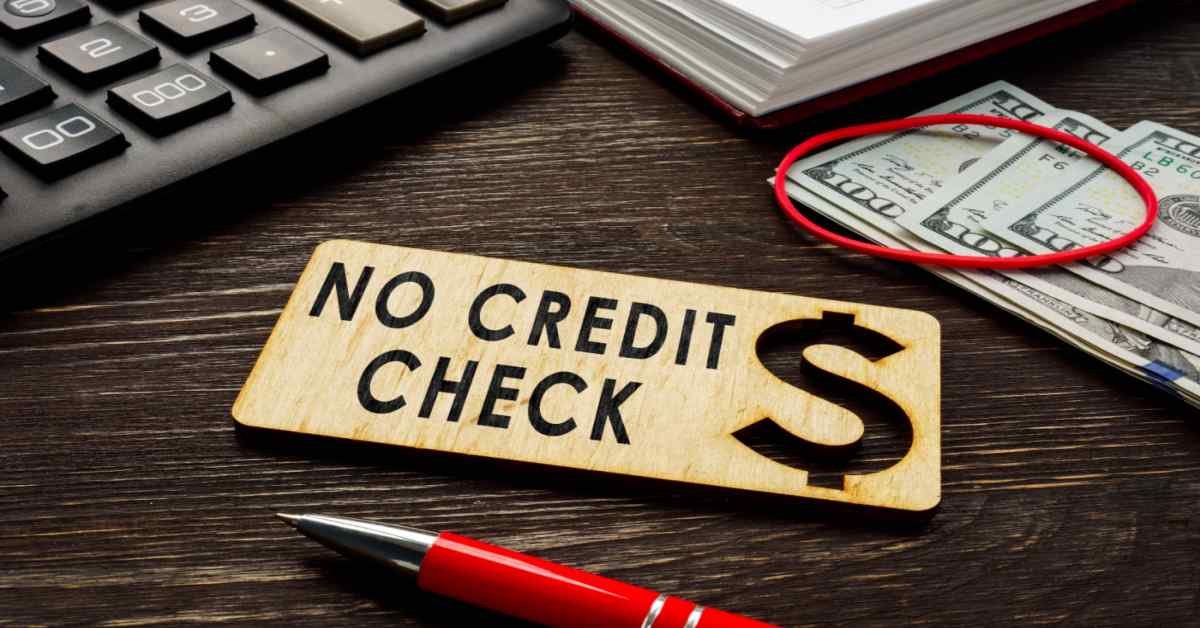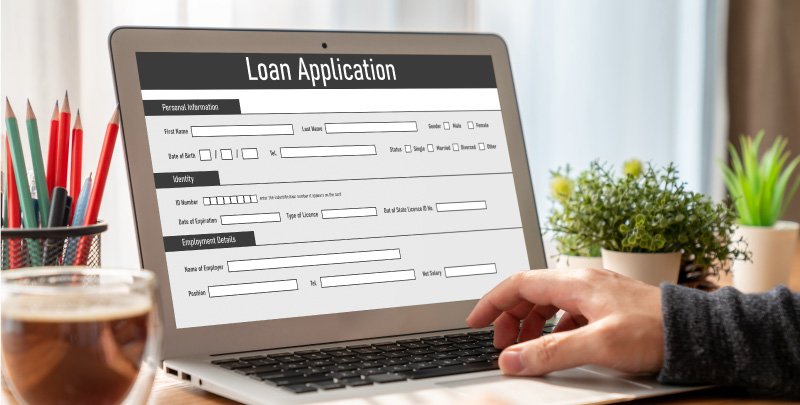In today’s digital age, applying for loans has become significantly easier. Gone are the days of long paperwork, multiple visits to the bank, and waiting weeks for approval. Online loans have made borrowing money more accessible and quicker than ever before. But like any financial product, it’s crucial to understand how online loans work before diving in.
In this article, we will take you through the process of applying for online loans, what you need to know before applying, the advantages and disadvantages, and tips for making the right decisions.
Key Takeaways
- Choose Reputable Lenders: Always verify the legitimacy of the lender to avoid scams.
- Understand Loan Terms: Read the fine print to know interest rates, fees, and repayment schedules.
- Check Eligibility: Ensure you meet the lender’s requirements to increase your chances of approval.
- Manage Repayment: Stay on top of your loan payments to avoid penalties and damage to your credit score.
- Loan Comparison: Compare loan offers to ensure you’re getting the best deal.
What Are Online Loans?
Online loans refer to personal loans, payday loans, or other types of borrowing that you apply for and receive over the internet. Unlike traditional loans that require you to visit a bank or financial institution, online loans can be applied for from the comfort of your home. They are typically processed quickly, and the funds are deposited directly into your bank account once approved.
How Do Online Loans Work?
Applying for an online loan is straightforward, but there are several important steps involved:
Choosing the Lender:
Online lenders come in various forms, including banks, credit unions, peer-to-peer lending platforms, and specialized lenders that focus exclusively on online loans. When choosing a lender, it’s important to consider:
- Loan Terms: The interest rate, repayment period, and fees.
- Eligibility Requirements: Many online lenders have different criteria, such as credit score, income, and employment status.
- Customer Reviews and Ratings: Check the reputation of the lender through reviews and ratings on trusted platforms.
Filling Out the Application:
After selecting a lender, you’ll be required to fill out an online application form. Typically, you’ll need to provide personal details, such as:
- Your full name
- Address and contact information
- Employment and income details
- Bank account information for fund disbursement
- Social Security Number (for identity verification)
Reviewing the Loan Offer:
Once you submit your application, the lender will review your financial profile, including your credit score and income. Based on this information, they will determine the loan amount and the interest rate. Many online lenders provide instant approval or pre-approval decisions, which means you’ll know if you qualify within minutes.
Loan Agreement and Acceptance:
If you’re approved for the loan, you’ll be provided with a loan agreement. This document outlines the loan terms, including:
- The loan amount
- The interest rate
- The repayment schedule
- Any applicable fees
Receiving the Funds:
After accepting the loan, the funds are typically deposited into your bank account within 1-3 business days, depending on the lender. Some online lenders, especially payday loan providers, may offer faster disbursement, sometimes within 24 hours.
Repayment:
Repayment terms vary based on the type of loan, but most online loans require monthly payments. The lender will outline the schedule, and it’s important to stay on top of your payments to avoid penalties or damage to your credit score. Many lenders offer automatic payments, which can be a helpful way to ensure timely repayment.
What to Know Before Applying for an Online Loan
While applying for an online loan is convenient, there are several things you should know to ensure the loan is right for you:
Interest Rates and Fees:
Interest rates for online loans can vary greatly, depending on your credit score, the lender, and the loan type. Payday loans and personal loans often come with higher interest rates, especially for individuals with poor credit. It’s important to compare rates across lenders to find the best deal. Additionally, be aware of any hidden fees, such as application fees, origination fees, or prepayment penalties.
Eligibility Criteria:
Online loans often come with minimum eligibility criteria. Lenders will look at factors like:
- Credit Score: Some online loans are available to individuals with poor credit, but you may face higher interest rates.
- Income and Employment: Lenders generally require proof of income to ensure that you can repay the loan.
- Debt-to-Income Ratio: Your current level of debt compared to your income is a critical factor in determining your eligibility.
Loan Types:
Online loans come in several different types:
- Personal Loans: Unsecured loans that don’t require collateral. These can be used for anything, from medical bills to home improvements.
- Payday Loans: Short-term loans meant to tide you over until your next paycheck. These often come with high interest rates and fees.
- Installment Loans: Loans that are repaid in fixed installments over a longer period.
- Peer-to-Peer Loans: Loans funded by individual investors rather than financial institutions.
Repayment Terms:
Understanding the loan’s repayment structure is essential. For payday loans, repayment is often due in full by your next payday, while personal loans and installment loans may give you months or even years to repay. Be mindful of how the repayment schedule fits within your budget.
Online Loan Scams:
Unfortunately, there are many online scams disguised as legitimate lenders. To avoid fraud, only deal with reputable lenders. Look for:
- Clear loan terms and transparency
- Secure website (HTTPS encryption)
- Positive reviews from previous customers
- A physical address or contact details for the lender
Pros and Cons of Online Loans
Pros:
- Convenience: You can apply for a loan from anywhere, at any time, without the need to visit a bank.
- Speed: Many online loans are processed quickly, with funds available within 24-48 hours.
- Flexible Options: There are many types of loans to choose from, including personal, payday, and peer-to-peer loans.
- Bad Credit Acceptance: Some online lenders specialize in loans for people with poor credit.
Cons:
- High Interest Rates: Some online loans, especially payday loans, come with high interest rates.
- Risk of Scams: There are fraudulent lenders that prey on borrowers. It’s important to verify the legitimacy of the lender.
- Debt Traps: If you’re not careful, online loans, particularly payday loans, can lead to a cycle of borrowing and debt.
Here are more detailed topic ideas related to “apply for online loans” that you can explore. Each of these topics provides a unique angle on the process, benefits, risks, and tips for applying for online loans.
Step-by-Step Guide: How to Apply for Online Loans with Bad Credit

- Overview: A detailed guide on how individuals with poor credit can apply for online loans and improve their chances of approval.
- Topics to Cover:
- What lenders look for when approving loans with bad credit
- Types of loans available for bad credit borrowers
- Tips for improving your credit score before applying
- How to choose the right online lender for bad credit
- Impact of bad credit loans on long-term financial health
How to Secure a Low-Interest Rate When Applying for Online Loans
- Overview: A guide focused on how to obtain online loans with the lowest possible interest rates, especially for borrowers with good credit.
- Topics to Cover:
- Factors that influence interest rates for online loans
- How to improve your credit score to secure lower rates
- Comparing loan offers and calculating APR
- Negotiating better terms with online lenders
- Alternatives to online loans with low-interest rates (e.g., credit unions)
Are Online Loans Safe? How to Protect Yourself When Applying
- Overview: A deep dive into how to ensure your personal information is secure when applying for online loans and how to avoid online scams.
- Topics to Cover:
- Identifying signs of a fraudulent lender
- How to verify the legitimacy of online loan platforms
- Best practices for securing personal data during the application process
- The role of encryption and secure websites
- Legal regulations and consumer protections in online lending
How to Choose the Right Online Loan for Your Needs
- Overview: A guide to help borrowers understand the various types of online loans and how to choose the right one for their specific financial needs.
- Topics to Cover:
- Types of online loans (personal loans, payday loans, installment loans, etc.)
- Assessing your financial situation before applying for a loan
- How to evaluate loan terms and fees
- How to compare lenders and loan options
- When to choose an online loan over other borrowing options
Common Mistakes to Avoid When Applying for Online Loans
- Overview: A discussion of common mistakes borrowers make when applying for online loans and how to avoid them.
- Topics to Cover:
- Applying for loans without understanding the terms
- Borrowing more than you need or can repay
- Ignoring fees and interest rates in loan agreements
- Failing to read the fine print of the loan contract
- Not checking for lender reviews and legitimacy before applying
The Pros and Cons of Applying for Online Loans: What You Need to Know
- Overview: A detailed comparison of the advantages and disadvantages of applying for online loans compared to traditional loans.
- Topics to Cover:
- Speed and convenience of online loans
- Accessibility for borrowers with bad credit
- Potential for high interest rates and fees
- Risks of falling into debt traps with payday loans
- How online loans fit into a broader financial strategy
How Online Loan Applications Work: Behind the Scenes
- Overview: A closer look at the application process from the lender’s perspective, explaining what happens after you apply for an online loan.
- Topics to Cover:
- What lenders check when reviewing your online loan application
- How online lending algorithms work to assess creditworthiness
- The role of credit scores, income verification, and other data
- How fast approvals are processed and why
- Common reasons for rejection and how to avoid them
How to Improve Your Credit Score Before Applying for an Online Loan
- Overview: A comprehensive guide on how to improve your credit score to qualify for better online loan terms and lower interest rates.
- Topics to Cover:
- The impact of credit score on loan approval and interest rates
- Practical steps to boost your credit score in a short period
- The role of credit utilization and payment history in your score
- Using credit cards responsibly to improve your credit rating
- How to dispute errors on your credit report
What Are the Different Types of Online Loans and How Do They Work?

- Overview: An in-depth explanation of the various types of online loans, including personal loans, payday loans, and peer-to-peer loans.
- Topics to Cover:
- Personal loans vs. payday loans: which is better for your needs?
- How peer-to-peer lending works and what it means for borrowers
- Short-term vs. long-term loans and their repayment structures
- When to apply for a secured vs. unsecured loan
- Interest rates and fees associated with different loan types
How to Avoid Debt Traps When Applying for Online Loans
- Overview: Practical advice for preventing debt traps, particularly with high-interest loans like payday loans.
- Topics to Cover:
- The dangers of rolling over payday loans and accumulating debt
- How to create a realistic budget and repayment plan
- The importance of not borrowing more than you can repay
- Alternatives to payday loans, such as credit union loans or installment loans
- What to do if you’re struggling to repay your online loan
What You Need to Know About Online Loan Interest Rates and Fees
- Overview: A detailed examination of how interest rates and fees work with online loans, and how to find the most affordable option.
- Topics to Cover:
- How interest rates are calculated and their impact on your total loan cost
- Types of fees that may be added to your loan (e.g., origination fees, late payment fees)
- The role of APR (Annual Percentage Rate) in understanding loan costs
- How to compare different lenders’ loan terms and interest rates
- Negotiating loan fees and terms with lenders
How to Apply for an Online Loan with a Cosigner
- Overview: A guide on how to apply for an online loan with a cosigner, and how it can help you secure a loan or better terms.
- Topics to Cover:
- What is a cosigner, and how does it work in the loan application process?
- Benefits of having a cosigner for borrowers with bad credit
- The risks and responsibilities for both the borrower and cosigner
- How cosigners can help reduce interest rates
- How to approach a potential cosigner and the legal implications
The Best Online Loan Providers: How to Choose the Right One
- Overview: A guide to finding the best online loan providers based on your needs, credit score, and financial situation.
- Topics to Cover:
- How to compare online loan providers based on reputation, fees, and customer service
- Top-rated online lenders for personal and payday loans
- How to evaluate a lender’s loan terms and transparency
- Importance of reading customer reviews and testimonials
- Lenders that specialize in bad credit loans or small loan amounts
How Online Loans Can Help with Debt Consolidation
- Overview: How to use online loans for consolidating multiple debts into a single, manageable payment.
- Topics to Cover:
- What is debt consolidation and how does it work?
- The pros and cons of consolidating debts with an online loan
- Types of online loans used for debt consolidation
- How to calculate if consolidation is the right choice for you
- Steps for consolidating debts effectively with online loans
How to Prepare Your Finances Before Applying for an Online Loan
- Overview: A practical guide on how to prepare your financial situation before applying for an online loan, ensuring you are more likely to get approved.
- Topics to Cover:
- Gathering necessary financial documents (proof of income, tax returns, etc.)
- Improving your credit score before applying
- Understanding your current debt-to-income ratio
- How to create a budget to determine the loan amount you can afford
- The importance of avoiding large purchases or taking on additional debt before applying
The Future of Online Loans: Trends and Predictions
- Overview: Explore the evolving landscape of online loans, including the impact of technology, new regulations, and changing consumer behavior.
- Topics to Cover:
- The role of artificial intelligence and machine learning in loan approvals
- How blockchain technology could disrupt online lending
- The rise of digital banks and their impact on online loans
- Future regulations and consumer protection in online lending
- Predictions for interest rates, loan types, and lending practices
How to Compare Online Loans: A Step-by-Step Guide
- Overview: Learn how to compare different online loans to choose the best one that fits your financial needs and goals.
- Topics to Cover:
- What to look for in loan offers (interest rates, terms, fees)
- The importance of checking APR (Annual Percentage Rate)
- How loan terms like repayment period and loan amount affect your finances
- Comparing online loan platforms and lenders (banks vs. non-bank lenders)
- Tools and websites to use for loan comparison
Is It Safe to Apply for Loans Online? How to Identify and Avoid Scams
- Overview: A guide on how to ensure that the online loan application process is safe and secure, and how to identify and avoid fraudulent lenders.
- Topics to Cover:
- Recognizing red flags of online loan scams
- What to check for in legitimate lenders (licenses, reviews, secure websites)
- Tips for safeguarding your personal data during the application process
- Government regulations protecting borrowers in the online lending space
- How to report scams and protect your credit
The Different Stages of Applying for Online Loans: What to Expect
- Overview: A breakdown of the entire online loan application process from start to finish, so you know what to expect at each stage.
- Topics to Cover:
- Initial application form and required documents
- Credit score check and loan eligibility
- Loan approval and disbursement processes
- Signing the loan agreement and understanding terms
- Loan repayment and how to manage repayments
What is the Impact of Applying for Online Loans on Your Credit Score?

- Overview: Understand how applying for and receiving online loans can affect your credit score in both positive and negative ways.
- Topics to Cover:
- How multiple loan applications can affect your credit score
- The role of credit inquiries in credit scoring models
- How timely repayments can improve your credit score
- The impact of defaulting on an online loan
- How to manage your credit after taking out an online loan
Can You Get an Online Loan Without a Credit Check?
- Overview: Explore whether it’s possible to secure an online loan without a credit check and what options are available for those with no or poor credit history.
- Topics to Cover:
- Types of loans available with no credit check (e.g., payday loans, no-credit-check personal loans)
- How no-credit-check loans work and their risks
- How lenders assess loan eligibility without a credit report
- The pros and cons of applying for no-credit-check loans
- Alternatives to no-credit-check loans for improving credit
How Online Loans Can Help You Build or Rebuild Your Credit
- Overview: Learn how applying for online loans can be an opportunity to improve or rebuild your credit score.
- Topics to Cover:
- How responsible borrowing and repayments impact your credit score
- Types of online loans that can help build credit (e.g., credit-builder loans)
- What to consider before using a loan to improve your credit
- How to make the most of an online loan to boost your credit score
- Long-term benefits of using online loans responsibly
Can You Apply for an Online Loan with No Job? What Are Your Options?
- Overview: Explore your options for applying for an online loan if you’re unemployed or have irregular income.
- Topics to Cover:
- Lenders that accept non-traditional income (freelance work, child support, alimony, etc.)
- Secured vs. unsecured loans when you don’t have a steady job
- How to increase your chances of loan approval without a job
- Alternatives to loans for those without employment
- The importance of loan repayment management in these situations
What Are the Most Common Reasons for Online Loan Rejection and How to Avoid Them
- Overview: Understand why some online loan applications are rejected and how to increase your chances of getting approved.
- Topics to Cover:
- Common reasons for rejection (low credit score, insufficient income, excessive debt)
- How to check and improve your credit score before applying
- The importance of accurate and complete information on the application
- How to assess your loan eligibility before applying
- Steps to take if your online loan application is rejected
Read Also :- https://leteheloan.shop/understanding-home-loans-a-beginners-guide-to-getting-approved/
Conclusion
Online loans offer a convenient, fast, and accessible way to borrow money. However, it’s important to carefully consider your financial needs, the loan terms, and your ability to repay before applying. Research lenders thoroughly to avoid scams, and make sure you understand all the fees, interest rates, and repayment terms associated with the loan.
By taking the time to understand how online loans work and making informed decisions, you can ensure that borrowing money online is a responsible and effective way to manage your finances.
FAQs
How long does it take to get an online loan?
- Most online loans are processed quickly. If approved, funds can be deposited into your bank account within 1-3 business days. Some payday lenders offer instant funding within 24 hours.
Can I get an online loan with bad credit?
- Yes, many lenders offer loans for people with poor credit, but the interest rates may be higher. It’s important to review the loan terms before committing.
Are online loans safe?
- While many online lenders are legitimate, there are also scams. Always research the lender, read reviews, and ensure that their website is secure.
Do I need collateral for an online loan?
- Some loans, like payday loans or personal loans, are unsecured, meaning they don’t require collateral. However, some lenders may require collateral for larger loan amounts.
What happens if I can’t repay my online loan on time?
- Late or missed payments can result in fees, higher interest rates, and a negative impact on your credit score. Contact your lender as soon as possible to discuss options.
Are there any fees for applying for an online loan?
- Some lenders charge application or origination fees. Always check the loan agreement carefully to understand any fees involved.
How can I improve my chances of getting approved for an online loan?
- Improve your credit score, ensure a stable income, and reduce your debt-to-income ratio. Providing accurate and complete information on your loan application can also help.





